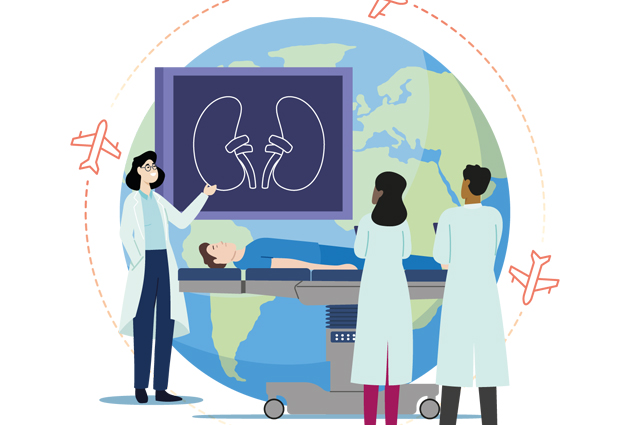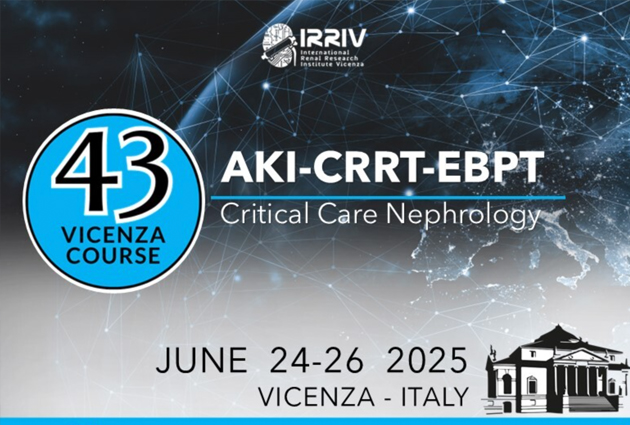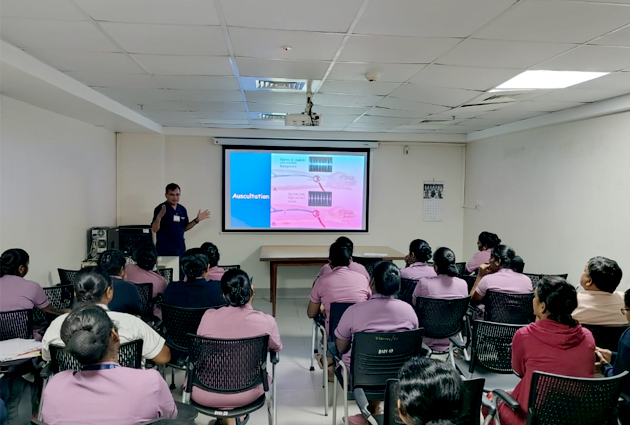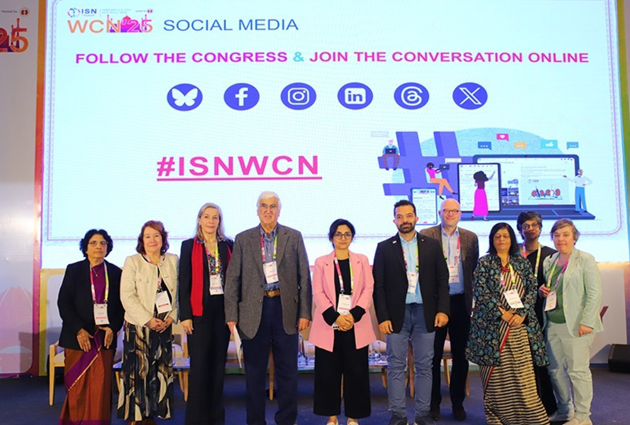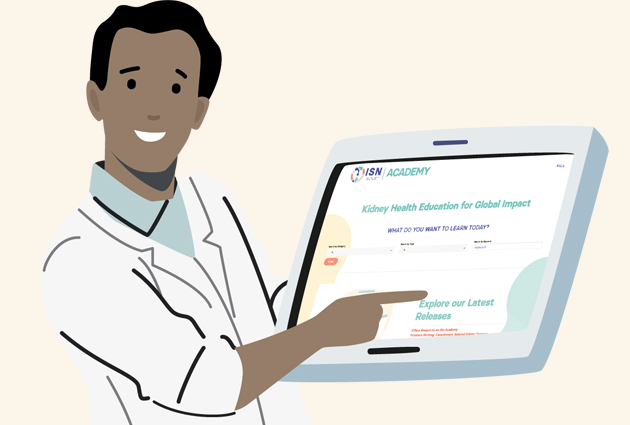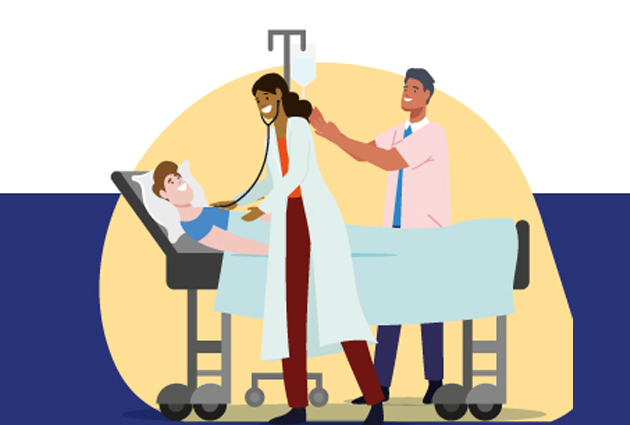Outstanding Development of Kidney Care Center in South America Through the ISN Sister Renal Centers Program
Dr. Ravi Mehta and Dr. Etienne Macedo from UCSD (2nd and 5th from right respectively) visit the EC in Bolivia during the 12th SLANH – AKI Congress in 2018
The Bolivia-USA Sister Renal Centers (SRC) partnership successfully graduated from the ISN SRC Program earlier this year, having significantly improved kidney care capacity at the emerging center over six years of collaboration.
The partnership between the emerging center, Hospital Obrero No. 2 (Caja Nacional de Salud), Cochabamba, in Bolivia, and the supporting center, Division of Nephrology-Hypertension, University of California San Diego (UCSD), USA, helped transform a small nephrology division with just two nephrologists with limited capacity and experience, into a strong center of reference for kidney care in the region, offering high-quality, up-to-date treatment to kidney disease patients, a good research program, and training opportunities. Dr. Rolando Claure-Del Granado from Hospital Obrero No. 2 and Dr. Ravindra Mehta from the University of California San Diego coordinated the collaboration between the two centers.
There are currently seven nephrologists at Hospital Obrero No. 2 with expertise in critical care nephrology, peritoneal dialysis, interventional nephrology, and transplantation. It is the only hospital in the area able to provide continuous renal replacement therapy (CRRT), prolonged intermittent renal replacement therapy, peritoneal dialysis (PD), hemodialysis, and plasma exchange for critically ill patients.
Since the program began, the emerging center has presented research every year at international kidney care meetings, such as the World Congress of Nephrology. The center has had 50 texts published, comprising book chapters, review papers, original articles and conference abstracts. Hospital Obrero was involved in two breakthrough AKI in LMIC studies, including the ISN 0by25 feasibility study.
Since its involvement in the ISN-SRC program, Hospital Obrero No. 2 has organized activities every World Kidney Day (WKD). The center is now in a position to support activities for the event, establishing an annual kidney walk, health fair, free screening for CKD, obesity, hypertension and diabetes, and film and educational material for media outlets.
A CME program was established and kept in place throughout the program to train faculty and staff. Through the program and with additional support from SLANH and the ISN, Hospital Obrero No. 2 co-organized two international meetings, the SLANH Latin America AKI Congress in 2018 and the International Bolivian Congress of Nephrology in 2019.
These meetings provided important opportunities for staff at the emerging center to network with other physicians and scientists. They helped generate an increase in expertise, permitting the development of skills and services provided by the center. These include an expanded CRRT program, plasmapheresis equipment and facilities, POCUS, and bio-electrical impedance analysis. Following these educational events, continuous ambulatory peritoneal dialysis, automated PD, and peritoneal catheter placement programs are planned at the center.
Fellows from other parts of the country can now train in critical care nephrology, interventional nephrology, POCUS in nephrology, and urinary sediment analysis at the center.
Because of travel restrictions imposed by the COVID-19 pandemic, in-person visits from the emerging center to the supporting center and vice versa were restricted from 2020 onwards. Funds for travel were redirected to support staff registration for international virtual congress and SLANH and ISN-led online training modules in glomerulonephritis, AKI, geriatric nephrology, and hemodialysis for staff.
Dr. Rolando Claure-Del Granado comments, “I would like to thank the entire ISN SRC Program leadership and staff for providing the required structure, funding, and administrative support to undertake this amazing journey as an emerging center and for helping us to graduate from the program successfully.”




